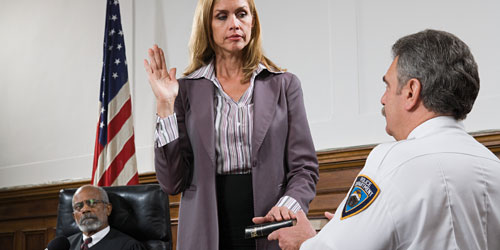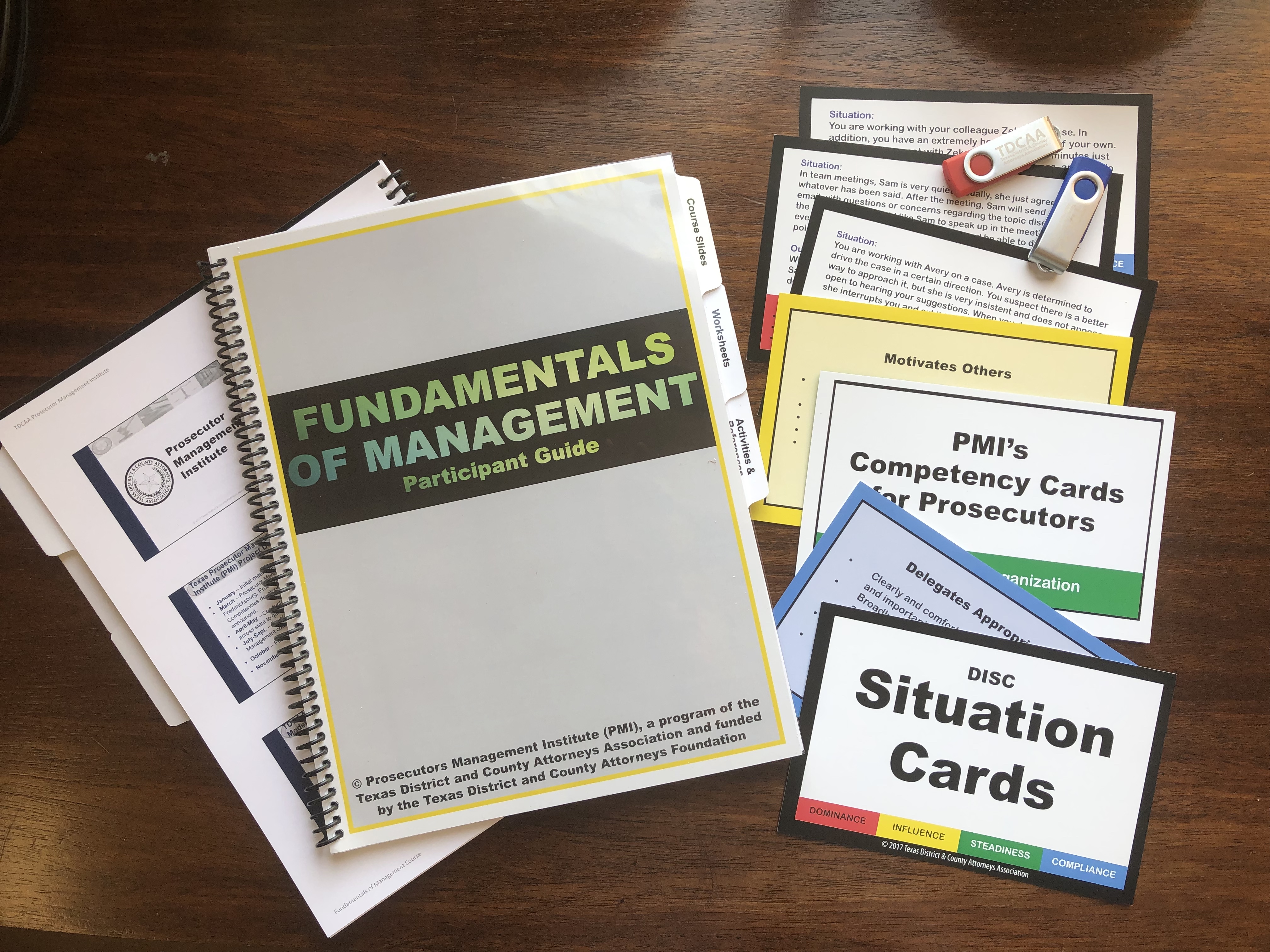U.S. Supreme Court
No. 16-1348 6/22/18
Issue:
May a defendant who agrees to sever charges later claim the second trial is blocked by Double Jeopardy?
Holding:
No. If a single trial on multiple charges would have avoided a Double Jeopardy complaint, a defendant’s choice to sever the charges can overcome any Double Jeopardy issue arising out of the successive trials. Furthermore, the State is not barred from introducing evidence of previously tried issues. Civil issue preclusion principles are not applicable in criminal cases. Here the defendant was charged with breaking and entering, grand larceny, and felon-in-possession. On agreement the felon-in-possession charge was severed and tried after the first two charges to prevent prejudice due to prior larceny convictions. Although acquitted on the first two charges involving the theft of firearms, the State may still proceed on the felon-in-possession charge involving the same firearms. Read opinion.
Concurrence (Kennedy, J.):
This case is sufficiently resolved considering only Double Jeopardy principles. Consideration of civil issue preclusion is unnecessary, so Justice Kennedy joined only part of the Court’s opinion. Read opinion.
Dissent (Ginsburg, J.):
“I would hold that [the defendant’s] acquiescence in severance of the felon-in-possession charge does not prevent him from raising a plea of issue preclusion based on the jury acquittals of breaking and entering and grand larceny. … The first trial established that [the defendant] did not participate in breaking and entering the [complainant’s] residence or in stealing their safe. The government can attempt to prove [the defendant] possessed firearms through a means other than breaking and entering the [complainant’s] residence and stealing their safe. But the government should not be permitted to show in the felon-in-possession trial what it failed to show in the first trial, i.e., [the defendant’s] participation in the charged breaking and entering and grand larceny, after a full and fair opportunity to do so.” Read opinion.
Commentary:
A great deal of the majority opinion (which is only parts I and II of the opinion) talks about Ashe v. Swenson. Because of that, you might think that this was a Double Jeopardy case based upon a collateral estoppel theory. It is not. The majority assumes without deciding that the defendant’s second trial would qualify as a retrial of the same offense under Ashe. The majority’s decision turns on the fact that the defendant consented to separate trials, and that, if the defendant had not consented and the cases were tried together, there is no doubt that his collateral estoppel argument would fail. In that respect, this is an application of Double Jeopardy law based on Jeffers v. United States and thus, the decision is perhaps not that remarkable. What is remarkable is Part III, which gained only four of the justices (but not Justice Kennedy). Part III suggests that civil issue preclusion (collateral estoppel) should not be a part of a Double Jeopardy jurisprudence. That is a pretty big deal because there is a great deal of Double Jeopardy caselaw in Texas built upon issue preclusion (collateral estoppel). If you want to make that argument, Justice Gorsuch has laid it all out for you in Part III. But to prevail on that argument, you might have to make it before the United States Supreme Court.
No. 16-402 6/22/18
Issue:
Is a warrant supported by probable cause required to obtain cell-site location information from a wireless carrier?
Holding:
Yes. Cell-site information is a combination of two types of information with differing expectations of privacy. While information voluntarily turned over to third parties has a lower expectation of privacy and is generally obtainable without a warrant, location information collected by wireless carriers is distinguishable from other third-party data because of the particularly strong, legitimate privacy interest in a person’s physical location and movements. The government must obtain a warrant supported by probable cause to access cell-site location information, except in possible case-specific exceptions such as exigent circumstances. Read opinion.
Dissent (Kennedy, J.):
“This case should be resolved by interpreting accepted property principles as the baseline for reasonable expectations of privacy. Here the Government did not search anything over which Carpenter could assert ownership or control. Instead, it issued a court-authorized subpoena to a third party to disclose information it alone owned and controlled. That should suffice to resolve this case. Having concluded, however, that the Government searched Carpenter when it obtained cell-site records from his cell phone service providers, the proper resolution of this case should have been to remand for the Court of Appeals to determine in the first instance whether the search was reasonable.” Read opinion.
Dissent (Thomas, J.):
“This case should not turn on ‘whether’ a search occurred. It should turn, instead, on whose property was searched. The Fourth Amendment guarantees individuals the right to be secure from unreasonable searches of ‘their persons, houses, papers, and effects.’ … By obtaining the cell-site records of MetroPCS and Sprint, the Government did not search Carpenter’s property. … The more fundamental problem with the Court’s opinion, however, is its use of the ‘reasonable expectation of privacy’ test. … The Katz test has no basis in the text or history of the Fourth Amendment. And, it invites courts to make judgments about policy, not law. Until we confront the problems with this test, Katz will continue to distort Fourth Amendment jurisprudence. … Because the Katz test is a failed experiment, this Court is dutybound to reconsider it. Until it does, I agree with my dissenting colleagues’ reading of our precedents.” (Internal citations omitted). Read opinion.
Dissent (Alito, J.):
“[T]he Court ignores the basic distinction between an actual search (dispatching law enforcement officers to enter private premises and root through private papers and effects) and an order merely requiring a party to look through its own records and produce specified documents. The former, which intrudes on personal privacy far more deeply, requires probable cause; the latter does not. Treating an order to produce like an actual search, as today’s decision does, is revolutionary. It violates both the original understanding of the Fourth Amendment and more than a century of Supreme Court precedent. Unless it is somehow restricted to the particular situation in the present case, the Court’s move will cause upheaval.” Read opinion.
Dissent (Gorsuch, J.):
“I do not agree with the Court’s decision today to keep Smith and Miller on life support and supplement them with a new and multilayered inquiry that seems to be only Katz squared. Returning there, I worry, promises more trouble than help. Instead, I would look to a more traditional Fourth Amendment approach. Even if Katz may still supply one way to prove a Fourth Amendment interest, it has never been the only way. Neglecting more traditional approaches may mean failing to vindicate the full protections of the Fourth Amendment. Our case offers a cautionary example. It seems to me entirely possible a person’s cell-site data could qualify as his papers or effects under existing law. … Yet the arguments have gone unmade, leaving courts to the usual Katz handwaving. These omissions do not serve the development of a sound or fully protective Fourth Amendment jurisprudence. “ Read opinion.
Commentary:
The majority decision reads more as an expression of concern for the government’s great power when it utilizes today’s technology, as opposed to an expression of concern for an individual’s privacy. As noted by Justice Kennedy in his dissent, cell phone company customers do not own, possess, control, or use their cell phone company’s cell site location information. Therefore, in this case, the government did not search anything over which the defendant could assert ownership or control. The majority makes it clear that this is intended to be a narrow decision. It leaves open the possibility that a warrantless search might be justified by exigent circumstances, such as bomb threats, active shooters, or missing or endangered children. It does not deal with conventional surveillance techniques, such as security cameras, nor does it deal with all information that a prosecutor might get from a defendant’s cell phone company. It deals only with historical cell site location information when there are no exigent circumstances or any other exception to the general Fourth Amendment requirement for a warrant.
Texas Court of Criminal Appeals
Nos. PD-0041-17 & PD-0503-17 6/27/18
Issue:
Can the evidence be sufficient to convict a defendant of murder when the victim’s body and murder weapon are not found?
Holding:
Yes. The corpus delicti rules requires the State to prove the death of a person but does not require the actual remains of the victim. The victim’s death can be proven through “the cumulative force of all the incriminating circumstances.” It is similarly not necessary to prove exactly how or with what the victim was killed. In these two unrelated cases, both victims had made plans with friends but failed to appear, a disappearance would have been out of character for the victims, and a search of nationwide databases revealed no economic or electronic activity after the victims disappeared. Coupled with evidence of strong motive and opportunity for each defendant to commit the murder, the evidence was sufficient to support the murder convictions. Read opinion.
Commentary:
As is the case with most cold cases and circumstantial evidence murder cases where the State is unable to produce the deceased’s body, these two decisions are very fact-specific. This opinion is very lengthy, but those prosecuting a homicide based upon circumstantial evidence alone would do well to read it.
No. PD-0498-17 6/27/18
Issue:
Is a trial court’s erroneous failure to instruct the jury on self-defense and necessity harmful?
Holding:
Yes. Failure to instruct on confession-and-avoidance defenses, such as self-defense and necessity, are rarely harmless because the omission “leaves the jury without a vehicle by which to acquit a defendant who has admitted to all the elements of the offense.” Here, a motion in limine prevented the defendant from raising any defensive issues because the defendant was unlawfully carrying a weapon. However, this is not an absolute bar to a self-defense claim. A defensive claim must be submitted to the jury if it is raised by any evidence, even if contradicted or weak. If the trial court’s refusal to instruct the jury on defensive issues was erroneous, then the defendant was harmed by the inability to present his defenses to the jury. Read opinion.
Commentary:
This decision is solely about whether the error was harmful. You might question whether any burglary defendant could be entitled to a charge on self-defense or necessity. Based on the unique facts of this case—which included an aggravated assault—the defendant probably was entitled to those defenses. It is a rare case that does not get reversed when the defendant requests a charge on a key defensive issue and does not get it.
No. PD-0948-17 6/27/18
Issue:
May the State appeal an amended order granting shock probation under Code of Criminal Procedure Art. 44.01?
Holding:
Yes. Under Code of Criminal Procedure Art. 44.01(a)(2), the State may appeal an order that arrests or modifies a judgment, including orders granting shock probation. An “amended order” that contains additional findings of fact not found in the original order granting shock probation modifies the judgment, even if there are no substantive changes to the terms of probation. Read opinion.
Commentary:
Those bringing a State’s appeal from an amended order should read this opinion very carefully. Not all amended orders would qualify as an appealable order. This opinion is very brief, but it appears to hold that, if an amended order modifies a judgment and has some independent legal significance, it can be an appealable order from which the State could appeal.
Texas Courts of Appeals
No. 02-17-00002-CR 6/21/18
Issue:
Can a written statement be admitted under the recorded recollection hearsay exception when the witness gave the statement in another language which was then translated and written in English?
Holding:
Yes. The underlying reasoning behind all hearsay exceptions is that these types of statements have circumstantial guarantees of trustworthiness. A recorded recollection is no less trustworthy simply because it must be translated from the witness’s native language into English. The statement was properly admitted because there was no evidence of fabrication on the part of the transcriber. Read opinion.
Commentary:
This is a unique case, in which the victim and the State did a remarkable job. By the time of trial, the victim could not remember what had happened when she had been assaulted by the defendant, but shortly after the assault, she told her daughter in Vietnamese, and her daughter wrote it down and translated it into English. The daughter then read the statement back to the victim, and the victim agreed that the statement was accurate and signed it. This is a good decision, explaining the recorded recollection exception to the hearsay rule, but these particular facts may never come up again.
No. 06-18-00008-CR 6/22/18
Issue:
May the legal guardian of a victim, excluded under Rule of Evidence 614 as a witness, be allowed into the courtroom during the victim’s testimony?
Holding:
Yes. Under Code of Criminal Procedure Art. 36.03, close relatives or guardians of a victim may be excluded under the Rule only if their testimony would be “materially affected” by hearing other testimony at trial. The party seeking exclusion of the witness must make an offer of proof justifying the exclusion. The trial court did not err by allowing the victim’s guardian to enter the courtroom during the victim’s testimony when the guardian had already testified. Read opinion.
Commentary:
As noted by the court of appeals, Art. 36.03 was enacted to strengthen the ability of crime victims and other particular witnesses to participate in criminal proceedings, notwithstanding “The Rule.” This is a short decision, but it explains the differences between Art. 36.03 and Rule 614. Prosecutors should be able to rely on this decision if they get the particular witness to testify first and the defendant can come up with no argument as to why the victim’s testimony would be materially affected. This should be a very helpful decision.



